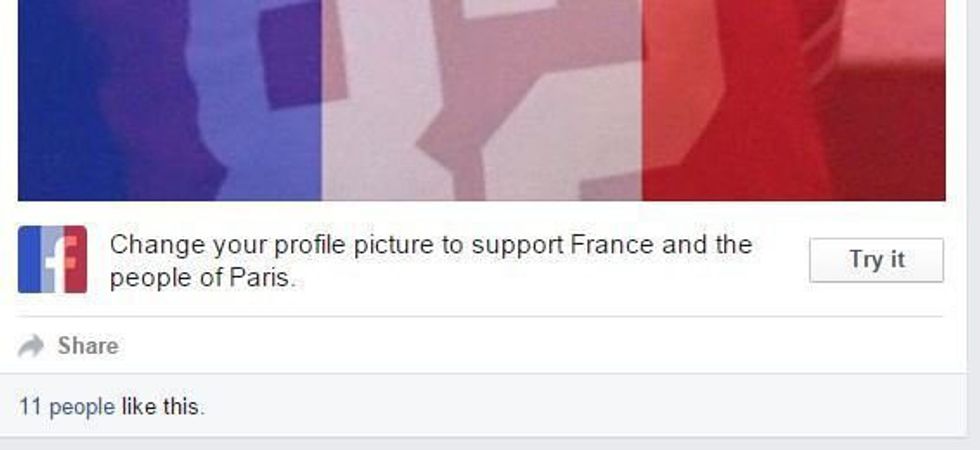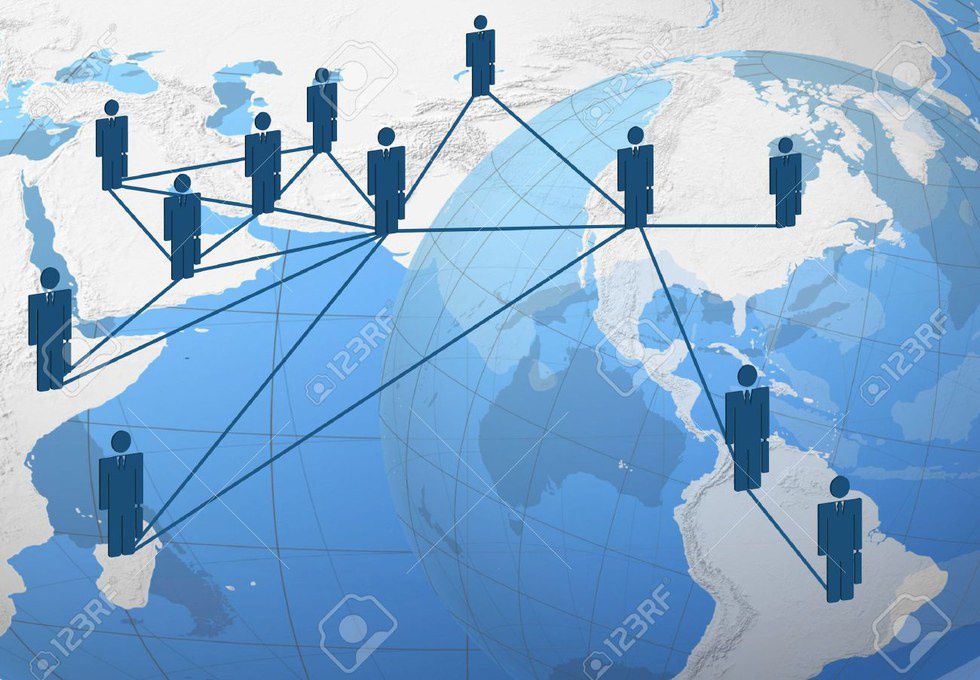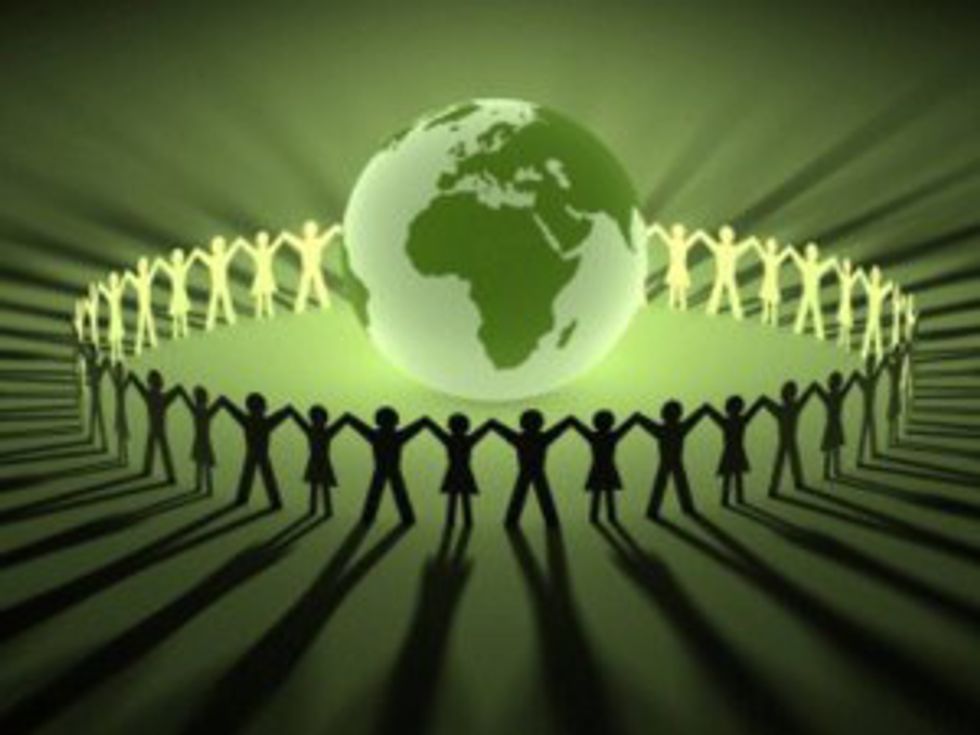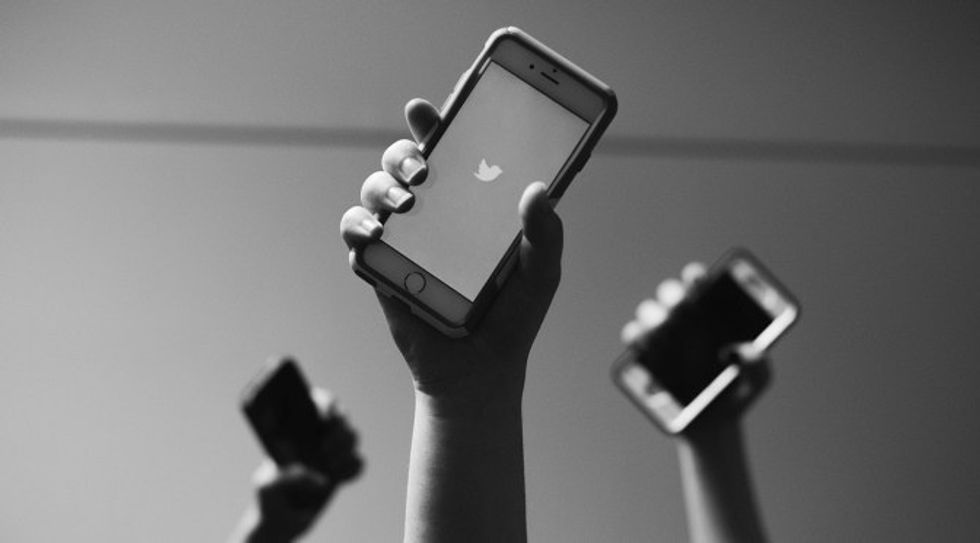On March 22, I woke up to see attacks underway in Belgium. The situation immediately brought me back to November 13, the evening of the Paris attacks. I did not write about it at the time, but I became active in discussions online and in the classroom, and I attended an ad hoc panel discussion, which was hosted by the University of Notre Dame.
The Paris attacks hit home for me, and I felt shaken and empathetically drained that entire evening. I changed my Facebook profile photo to the French flag filter. And later, I received backlash for it, both directly and via social media uprising, because other filter options were not provided for tragic events in other countries. To this criticism, I defended myself.
I defended myself because four months prior to these attacks, I had returned from my semester abroad in France. I spent six months on the beautiful Cote-d’Azur along the Mediterranean coast. I made new friends, many of them from the Maghreb region, and what united us all was one language and one shared experience. The language was French, and the experience was the passing of six months in the French coastal region.
The Paris attacks, for me, felt like attacks on myself because I speak the language spoken by the victims in the attacks, and I have walked in the same streets many of them had. I have read and analyzed French literature and studied French history. Because of this, it was very human to feel a special bond to France. A part of me shares a part of them. And this is key.
I did not change the filter because I felt like my Western values or my Western ideals or my Western history were being attacked. I changed it for reasons so close and personal.
I think there is room for criticism of Facebook here. At that time, the social media platform did not provide a filter for Lebanon. And this is important. It says something very insightful, which we need to understand.
It shows that Facebook, while being an American company, is used all over the world. As such, we must ask if it can really hold a bias for certain values and ways of living. Are other non-Western people not deserving of our solidarity, or the ability to stand in solidarity with each other? And what message is it sending if we expect the world to stand in solidarity with us but we do not send signals of solidarity to them when they are also victims of violence?
Facebook has become a major player in global communication, social activism, and political statements. It provides the opportunity for anyone to speak out, and despite its location of birth, it should not single out who has the privilege to show support for something and who does not, specifically because it has become a “global” modality for communication and idea transfer.
According to the activism I see when scrolling my newsfeed, it seems many would believe each time an “attack” happens, Facebook needs to provide a filter for solidarity. But if this is so, don’t we just need to create a filter for every country? Isn’t violence happening everywhere?
Recently we needed a Belgium filter, but before that we needed a Cote D’Ivoire filter; before that we needed a Turkey filter. Every day we need a Syria filter, and we could also use a Ukrainian filter. We’ve needed an Iraq filter, an Afghanistan filter, a Pakistan filter. How about a Kurdish filter, a woman filter, or a gay filter? Tragedy anywhere touches someone somewhere.
The reason people support a filter may not always be obvious. Others may perceive my French flag filter as an American supporting one of our political allies, or a “Westerner” supporting my “Western culture,” or even me supporting Western hegemony. But none of those were the reason. I chose to use it because I have an intimate and personal tie to the place.
There is someone with a human tie to any place. And if Facebook wants to be a global network, connecting people of all races, ethnicities, genders, nationalities, political affiliations, and artistic differences or similarities, then it must also approach its decision and choice to provide options to users from a global standpoint, without bias or ethnocentric ideologies.
Facebook states their mission as such: “Founded in 2004, Facebook’s mission is to give people the power to share and make the world more open and connected. People use Facebook to stay connected with friends and family, to discover what’s going on in the world, and to share and express what matters to them.”
But that’s just the tricky element. If a social network is truly an expression space for any and all of its users, open to the world and not just one region, desiring to allow anyone to express what matters, then when we look at options like Facebook filters for solidarity, there should really be one for every country in the world, because someone, somewhere may desire to express their solidarity through the social platform. And again, those choices are decided from complex histories unique to each individual.
When the lights of Paris went out, a security check suddenly became a thing on Facebook. This sprang controversy. Why did this not exist before? Recently, Facebook notified me that I was in the area of Lahore, Pakistan during attacks in that city, and gave me the option to declare I was safe. Though I was utterly confounded by the obvious mishaps of GPS configuration, I smiled knowing that people in Lahore had this choice to announce their security. But, the victims of the attack were Christians.
So, in a world able to be so intricately connected, how do we move forward in a way that meets the needs of everyone? It is hard enough for individuals to transcend the self/other mentality, so how can nations at large transcend the self/other mentality, especially during times of crisis and the tyranny of the moment? It is in times of crisis that our instinct to grasp onto a self and ostracize a concept of the other is strongest.
I found myself feeling the same way; when France was attacked, my sense of self was attached. Suddenly, there was an “other.” It took stepping out of my emotional reaction to ask myself how to transcend the separatism my identity wanted to create. It must be difficult for the collective consciousness of a “nation” to move beyond separation.
In only providing filters for those countries who share a similar Western history, Facebook runs the risk of spreading ethnocentrism in a platform dedicated to diversity and global connection. This is why people feel frustration toward Facebook. The privilege to stand in solidarity is often granted only to those users who fit a certain identity.
So, do we want to create a platform which invites the possibility of a global identity, but also allows for personal choice? Do we want a platform which enables controversy but at least allows everyone the opportunity to feel supported? What kind of platform do we want? And how do we want to adjust it to fit our needs as global citizens who still maintain individual, ethnic, regional, and national identities? Can all of these differences exist in the same space and simultaneously be accepted? What do we want as a world and how do we get there?
It takes a lot to tear down our constructions of “Self” and “Other.” But it is only through tearing down those distinctions, only through trying our best to move beyond ourselves and to encompass the other, to humanize the other, can we possibly arrive at understanding. Hopefully in understanding, fear will leave the room.























